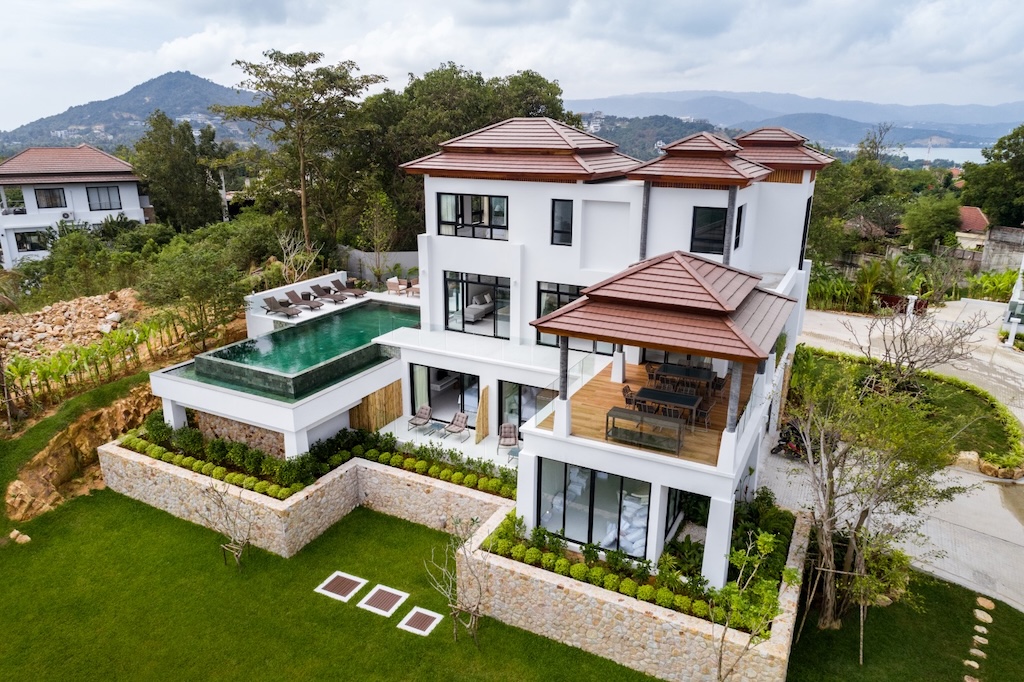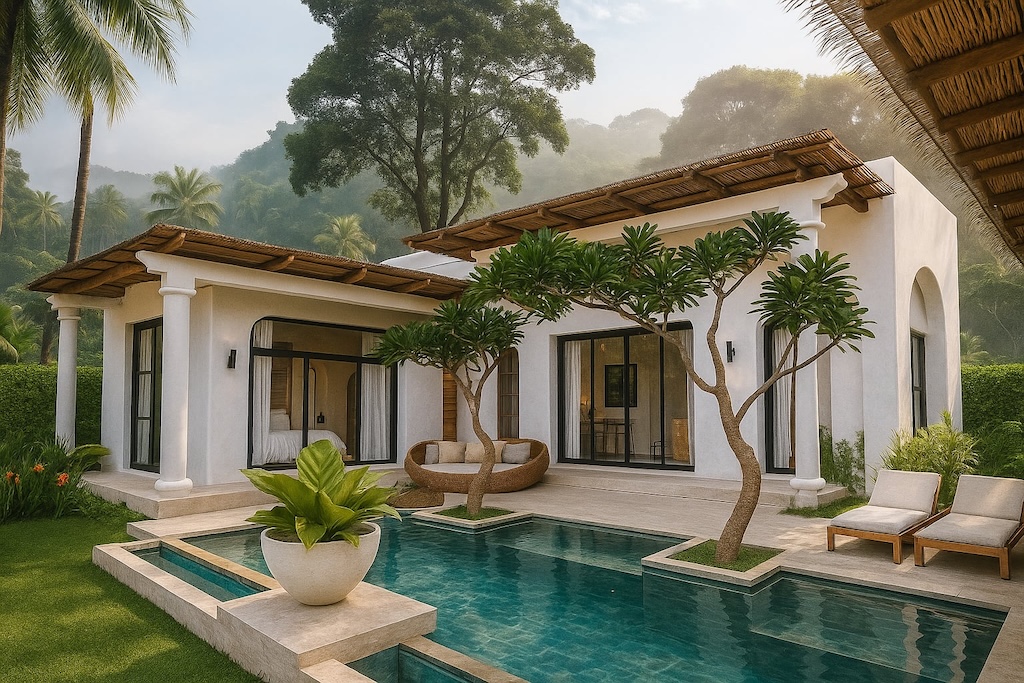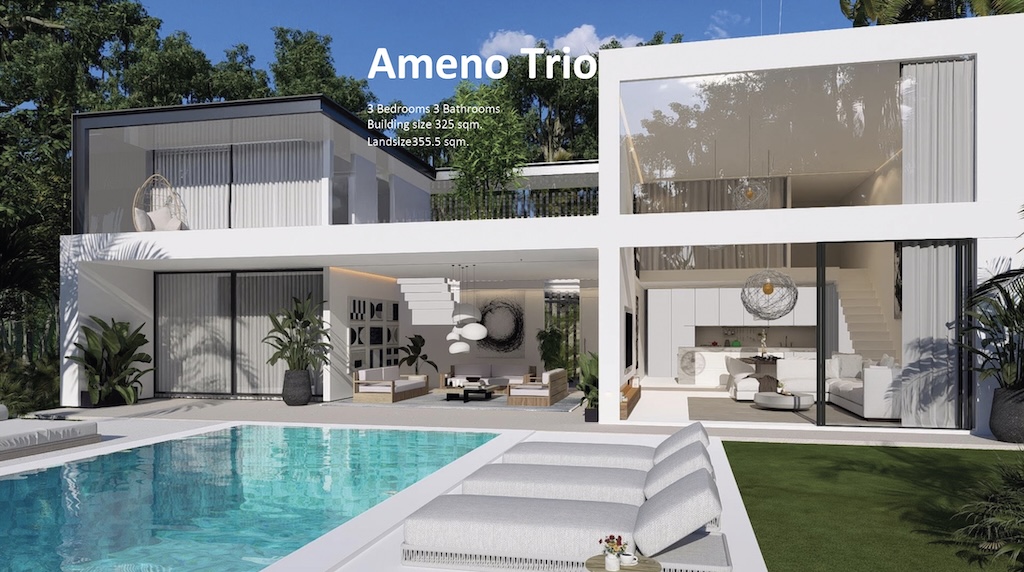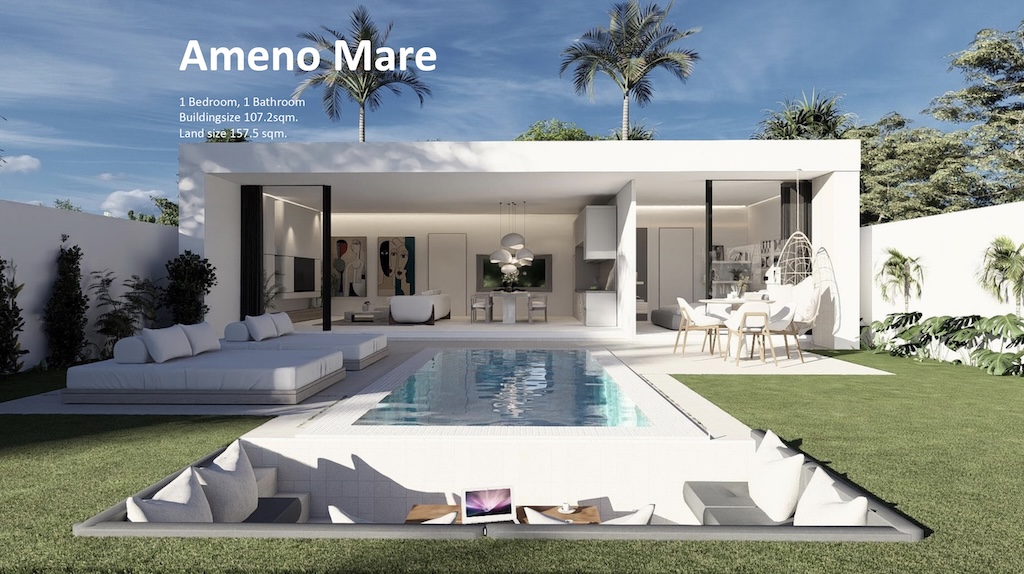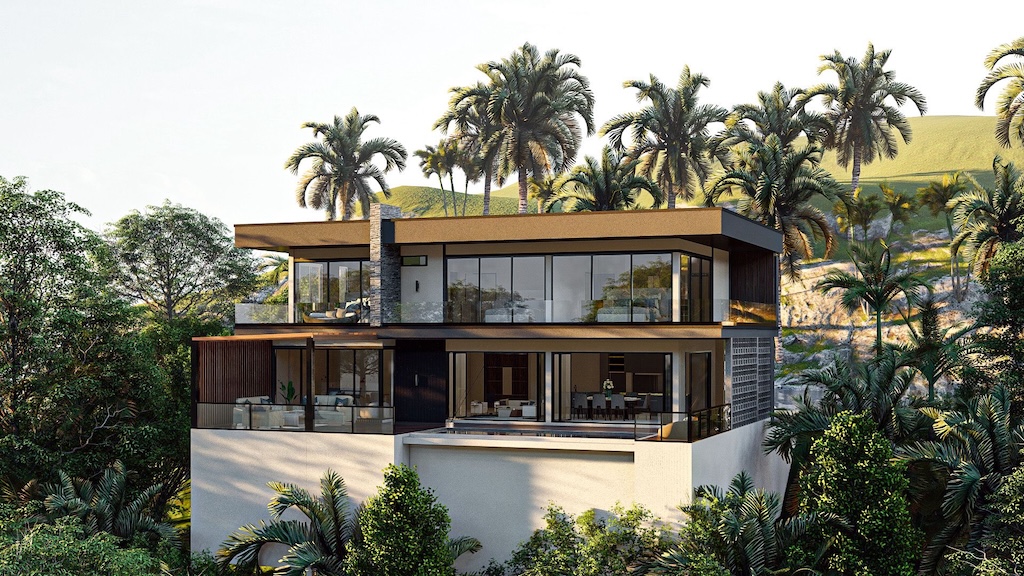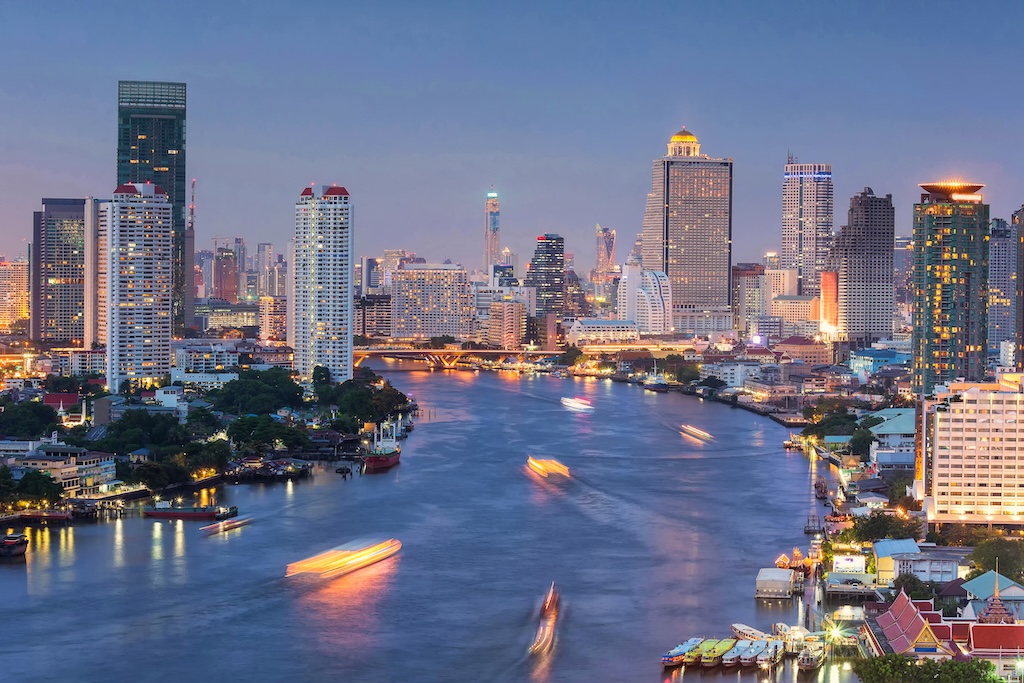
Bangkok Real Estate Market A Comprehensive Guide – Bangkok, the pulsating heart of Thailand, stands as a testament to the harmonious blend of tradition and modernity in Southeast Asia. This vibrant metropolis, with its skyline punctuated by gleaming skyscrapers and golden temple spires, offers a real estate market as diverse and dynamic as the city itself. For investors and homebuyers alike, Bangkok presents a tapestry of opportunities, woven from threads of economic vitality, cultural richness, and urban innovation.
As you navigate the Bangkok real estate and property market, you’ll encounter a spectrum of options that cater to every taste and budget. Luxurious condominiums with panoramic views of the Chao Phraya River stand in stark contrast to charming shophouses in historic districts, each telling its own story of the city’s evolution. This diversity is not just in architecture but also in the very fabric of neighborhoods, from the cosmopolitan buzz of Sukhumvit to the cultural enclaves of Chinatown.
Understanding the nuances of Bangkok’s real estate market requires more than just a cursory glance. It demands an appreciation of the interplay between economic growth, rapid urbanization, and the influx of foreign investment. These factors have collectively shaped Bangkok into a complex yet rewarding arena for property seekers, where opportunities abound for those who can navigate its intricacies.
Historical Overview of Bangkok’s Property Market
The journey of Bangkok’s real estate market is a tale of resilience and transformation. Since the late 20th century, the city’s property sector has weathered storms and embraced booms, each phase leaving an indelible mark on its landscape.
The 1980s and early 1990s marked a period of exuberant growth, fueled by economic liberalization and a surge in foreign investment. This era saw Bangkok’s skyline dramatically reshaped, with high-rise buildings sprouting across the city and suburban areas expanding at a rapid pace. However, this bubble of prosperity was not to last.
The Asian Financial Crisis of 1997 struck with devastating force, sending shockwaves through the real estate market in Bangkok. Property values plummeted, and many ambitious development projects ground to a halt, leaving behind skeletal structures as somber reminders of shattered dreams.
Yet, true to its resilient spirit, the Bangkok real estate market began its gradual recovery. By the mid-2000s, improved economic conditions and renewed investor confidence breathed life back into the sector. This resurgence laid the foundation for the diverse and dynamic market we see today, characterized by innovative developments and a growing emphasis on sustainable urban living.
Current Trends Shaping Bangkok Real Estate
Today, Bangkok’s real estate landscape is being sculpted by several key trends that reflect both global influences and local aspirations. Mixed-use developments have gained significant traction, offering residents the convenience of living, working, and playing within integrated communities. These projects are not just about maximizing space; they’re about creating vibrant, self-contained ecosystems that cater to the modern urban dweller’s desire for convenience and community.
Simultaneously, there’s a growing emphasis on green buildings and sustainable development practices. This shift is driven by increasing environmental awareness and the tangible benefits of energy-efficient designs. Developers are incorporating features like solar panels, green spaces, and water recycling systems, appealing to eco-conscious buyers and aligning with global sustainability trends.
Technology integration has become a cornerstone of new developments. Smart home features and advanced building management systems are no longer luxuries but expected amenities, enhancing living experiences and operational efficiencies. From app-controlled home systems to AI-powered security, technology is reshaping the very concept of modern urban living in Bangkok.
The city’s expanding mass transit network continues to be a major influence on property values and development patterns. Transit-oriented developments near BTS and MRT stations command premium prices, reflecting the high value placed on convenience and accessibility in this bustling metropolis.
In the luxury Bangkok real estate market segment, growth remains robust, with high-end properties attracting both local and international buyers. These premium offerings often feature bespoke designs, exclusive amenities, and prime locations, catering to a discerning clientele seeking the epitome of urban sophistication.
Key Neighborhoods Driving Bangkok’s Property Boom
The real estate market in Bangkok is a mosaic of diverse neighborhoods, each with its unique character and investment potential. Sukhumvit, stretching from the city center to the eastern suburbs, remains a perennial favorite among expats and affluent locals. This cosmopolitan area offers a mix of high-rise condominiums, luxury villas, and vibrant commercial spaces, complemented by international schools, shopping malls, and a thriving restaurant scene.
The Silom and Sathorn districts form the beating heart of Bangkok’s central business district. Here, luxury condominiums and premium office spaces dominate the skyline, attracting professionals and investors alike. The proximity to Lumpini Park, an urban oasis, adds a touch of nature to this concrete jungle, enhancing its appeal for those seeking a balance between work and leisure.
For those with their finger on the pulse of Bangkok’s trendiest spots, Thonglor and Ekkamai are the places to be. These adjacent neighborhoods have evolved into hubs of hip cafes, boutique shops, and a vibrant nightlife scene. The real estate market here reflects this cool factor, with a mix of high-end condominiums and creatively renovated shophouses catering to young urbanites and creative professionals.
The Chao Phraya River, Bangkok’s lifeline, has witnessed a renaissance in recent years. Luxury developments along the riverside offer not just stunning views but a sense of tranquility amidst the urban hustle. The ongoing development of riverside promenades and entertainment complexes is further cementing this area’s status as a prime real estate hotspot.
For those seeking value with potential for appreciation, Ratchadaphisek in northern Bangkok is emerging as an area to watch. Improved connectivity and the presence of large shopping malls and entertainment complexes are drawing attention to this up-and-coming neighborhood, offering more affordable options without compromising on urban amenities.
Types of Properties in High Demand
The Bangkok real estate property market caters to a wide range of preferences and investment strategies. Condominiums continue to dominate the market, offering options from compact studio units ideal for young professionals to spacious luxury penthouses for those seeking the pinnacle of urban living. The popularity of condos is driven by their convenience, amenities, and often prime locations near mass transit options.
Townhouses present an attractive middle ground, especially in suburban areas. These 2-3 story units, often part of gated communities, appeal to families looking for more space and a sense of community without the high maintenance of a detached house.
For those dreaming of a more expansive living space, detached houses in Bangkok’s outer areas offer a range of options, from modest family homes to luxurious villas. These properties cater to those who prioritize space and privacy over proximity to the city center.
Shophouses, a unique feature of Bangkok’s urban landscape, serve a dual purpose as both residential and commercial spaces. Popular among small business owners and startups, these multi-story buildings offer the flexibility to live and work in the same location, a concept that’s gaining traction in the age of remote work and entrepreneurship.
Serviced apartments, bridging the gap between hotels and residential properties, cater to the growing market of medium-term visitors and expatriates. Offering fully furnished units with hotel-like amenities, they provide a home-away-from-home experience for those not ready to commit to long-term leases.
Foreign Investment in Bangkok Real Estate
The Bangkok real estate market has long been a magnet for foreign investors, attracted by the potential for capital appreciation and attractive rental yields. However, navigating this market as a non-Thai buyer requires understanding specific regulations and considerations.
Foreigners can own condominiums outright, but there’s a catch – foreign ownership is limited to 49% of the total unit area in any given condominium project. This regulation ensures a balance between foreign investment and local ownership.
When it comes to land, direct ownership by foreigners is generally not permitted. However, long-term leases of up to 30 years, which can be renewed, offer an alternative path to property rights. Some investors opt for indirect ownership through Thai companies, though this approach requires careful legal structuring and compliance with Thai business laws.
Certain areas of Bangkok have become particularly popular among foreign buyers. Sukhumvit, Silom, and Riverside areas top the list, thanks to their cosmopolitan atmosphere, investment potential, and array of lifestyle amenities catering to an international crowd.
Several factors drive foreign interest in Bangkok’s property market. Thailand’s growing tourism industry, Bangkok’s status as a regional business hub, and the relatively affordable luxury property prices compared to other Asian metropolises all contribute to the city’s appeal for international investors.
It’s worth noting that the Thai government periodically reviews and adjusts policies related to foreign property ownership. Staying informed about current regulations and working with reputable local legal advisors is crucial for any foreign investor looking to navigate Bangkok’s real estate market successfully.
Impact of Infrastructure Development on Property Values
Bangkok’s ongoing infrastructure development is reshaping the city’s real estate landscape, creating new investment hotspots and enhancing the value of existing properties. The expansion of the mass transit network, including new BTS and MRT lines, is perhaps the most significant driver of property value appreciation. Areas once considered peripheral are now becoming increasingly accessible, leading to a surge in development and property prices along these new transit routes.
Airport link extensions are enhancing connectivity to Suvarnabhumi and Don Mueang airports, making properties along these routes more attractive to both residents and investors. The convenience of easy airport access is a significant selling point in a city known for its traffic congestion.
Looking to the future, planned high-speed rail projects promise to connect Bangkok more efficiently with other major cities in Thailand. These projects have the potential to create new development zones and investment opportunities in areas that will serve as transport hubs.
Road and expressway improvements, while less glamorous than rail projects, play a crucial role in reducing traffic congestion and increasing the attractiveness of previously less accessible areas. As new roads and expressways are completed, they often bring with them a wave of development and rising property values.
For investors and homebuyers, staying informed about current and planned infrastructure projects is crucial. Properties located near new transit stations or along improved transportation corridors often see significant appreciation in value, making them attractive options for those looking to capitalize on Bangkok’s ongoing development.
Challenges and Future Projections
Despite its many opportunities, the real estate market in Bangkok faces several challenges. An oversupply in certain segments, particularly in the mid-range condominium market, has led to price stagnation and even depreciation in some areas. Economic uncertainties, both global and domestic, can impact foreign investment and local buying power.
Environmental concerns, particularly Bangkok’s susceptibility to flooding, pose challenges for developers and homeowners alike. This has led to an increasing focus on sustainable development practices and flood-resistant designs.
Urban planning challenges, with rapid development sometimes outpacing infrastructure, raise concerns about long-term livability in some areas. Market speculation can lead to artificial price inflation, carrying the risk of market corrections.
Looking to the future, several factors are likely to shape Bangkok’s property sector. Continued urbanization will drive demand for housing in and around the city. Technological integration in homes and property management is expected to accelerate, with smart home features becoming standard rather than luxury add-ons.
A growing focus on sustainability will likely lead to more green building certifications and energy-efficient designs. Evolving work patterns, including the rise of remote work, may influence housing preferences and potentially shift demand towards suburban and satellite city developments.
Demographic shifts, including an aging population and the preferences of younger generations, will influence the types of properties in demand and the amenities they offer. On a broader scale, Bangkok may face increased competition from other Southeast Asian cities as they develop and attract investment.
Conclusion: Navigating Bangkok’s Dynamic Real Estate Market
The real estate market in Bangkok offers a wealth of opportunities for investors and homebuyers, but it requires careful navigation. The city’s blend of historical charm and modern development, coupled with its position as a regional economic hub, creates a unique and dynamic property landscape.
Success in this market demands thorough research, an understanding of legal requirements, and a keen eye for emerging trends and opportunities. Whether you’re looking for a personal residence, a rental investment, or a commercial property, Bangkok’s diverse market has something to offer.
As you embark on your Bangkok real estate journey, remember that knowledge is your most valuable asset. Stay informed about market trends, work with reputable professionals, and approach your investment with a long-term perspective. With the right approach, investing in Bangkok’s real estate can be a rewarding experience, offering both financial returns and the opportunity to be part of one of Southeast Asia’s most vibrant cities.
Ready to explore the exciting opportunities in Bangkok’s real estate market? Our team of experienced professionals is here to guide you through every step of your property investment journey. From identifying prime locations to navigating legal requirements, we offer comprehensive support tailored to your unique needs. Don’t miss out on the chance to be part of Bangkok’s dynamic growth story. Contact us today for a personalized consultation and take the first step towards your property investment in the City of Angels.

